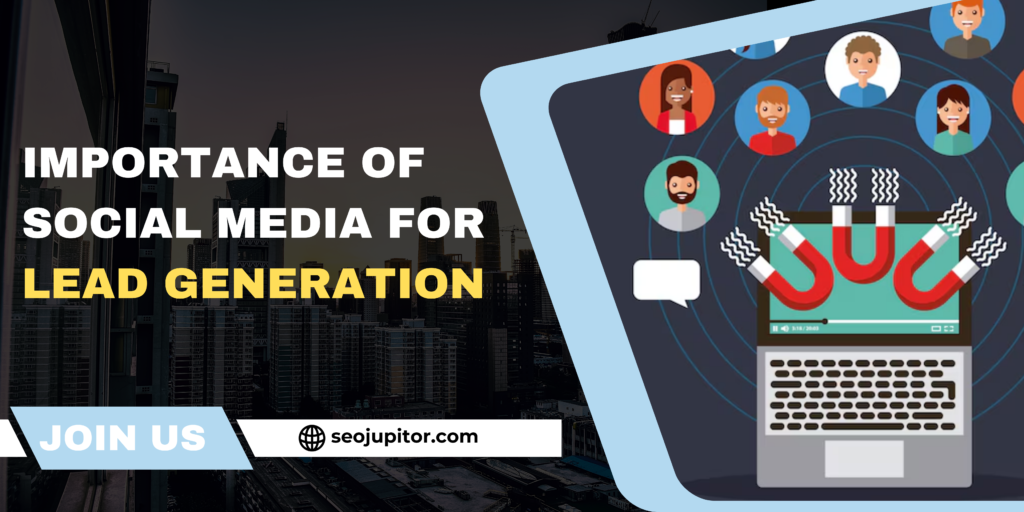Social media advertising has become one of the most effective ways to reach new audiences, boost brand visibility, and drive business growth. With billions of users across platforms like Facebook, Instagram, LinkedIn, and TikTok, social media offers an unparalleled opportunity to connect with potential customers and engage with them on a personal level. Here, we’ll explore the key benefits of social media advertising and why it’s an essential component for any brand looking to thrive in today’s competitive landscape.
1. Enhanced Brand Awareness
One of the primary benefits of social media advertising is the ability to increase brand awareness quickly and efficiently. Advertising on social media allows you to target specific demographics, interests, and behaviors, ensuring that your brand reaches people who are most likely to be interested in your products or services. When your brand appears consistently in their feeds, it reinforces brand recognition, making it easier for users to recall your business when they’re ready to make a purchase.
By using eye-catching visuals, engaging captions, and compelling calls to action, you can capture users’ attention and create a positive first impression that enhances brand recall. Whether you’re a new business or an established company, social media advertising is a powerful way to expand your reach and introduce your brand to potential customers.
2. Targeted Advertising for Higher ROI
Social media platforms offer sophisticated targeting options that allow you to reach the right audience. Through demographic, geographic, and behavioral targeting, social media advertising ensures that your ads are shown to people who are likely to be interested in your brand. For instance, if you’re selling eco-friendly products, you can target users who have shown interest in environmental sustainability.
This level of targeting results in a higher return on investment (ROI) as your ad spend goes towards reaching users who are more likely to convert. In comparison to traditional forms of advertising, social media’s targeting capabilities allow for more precise marketing, which translates into increased efficiency and effectiveness of your campaigns.
3. Improved Customer Engagement and Interaction
Unlike traditional advertising, which is often one-sided, social media advertising allows for real-time interaction with your audience. Through comments, likes, shares, and direct messages, users can engage directly with your brand, and you can respond to them quickly. This interaction builds a sense of community around your brand and fosters stronger relationships with your customers.
Engaging with your audience also helps you gain insights into their preferences, feedback, and concerns. When you respond to their questions, address their needs, or even show appreciation for their comments, you create a positive brand image and enhance customer loyalty.
Read here – Digital Marketing: Strategies, Importance, and Execution
4. Cost-Effective Marketing Solution
Social media advertising is generally more affordable than traditional advertising channels, such as TV, print, and radio. Platforms like Facebook, Instagram, and Twitter offer a variety of ad formats to fit different budgets, from pay-per-click (PPC) and cost-per-impression (CPM) models to boosted posts and sponsored content.
With social media advertising, you have control over your ad spend and can set daily or monthly budgets to suit your financial goals. Additionally, you can measure your ROI in real-time and adjust your ad campaigns based on performance, ensuring that your money is spent effectively. Small businesses, in particular, benefit from social media advertising as it offers an affordable way to compete with larger companies and reach a broad audience.
5. Access to In-Depth Analytics and Performance Metrics
Social media platforms provide valuable insights and analytics to help you track the effectiveness of your ad campaigns. Through metrics like impressions, engagement rates, click-through rates, and conversions, you can assess how well your ads are performing and identify areas for improvement.
In-depth analytics allow you to make data-driven decisions, optimize your ads, and focus on strategies that deliver the best results. For example, if you notice that a particular ad is generating high engagement, you can allocate more budget to that ad to maximize its impact. Conversely, if an ad is underperforming, you can pause it and test alternative approaches to improve its effectiveness.
6. Greater Brand Loyalty and Trust
Social media advertising can help foster brand loyalty by humanizing your brand and creating a sense of authenticity. When users see your ads regularly, interact with your content, and receive prompt responses to their queries, it builds trust and establishes a positive image of your brand. Social media also allows you to showcase your brand’s values, personality, and unique selling points, making it easier to connect with your audience on a personal level.
For example, if your brand advocates for a social cause, such as environmental conservation or community empowerment, social media ads can highlight these values and attract like-minded customers. This approach resonates with audiences who share your brand’s mission and are more likely to become loyal advocates.
7. Boost in Website Traffic and Conversion Rates
Social media ads often include calls-to-action (CTAs) that encourage users to visit your website, shop online, or sign up for newsletters. These CTAs drive traffic directly from the social media platform to your website or landing page, increasing the chances of conversions. You can also use retargeting ads to reconnect with users who have previously visited your website but didn’t make a purchase, bringing them back with relevant offers or promotions.
By optimizing your ads for conversions and creating persuasive landing pages, social media advertising can lead to increased sales, higher conversion rates, and greater revenue for your business.
8. Competitive Advantage
With so many brands vying for consumers’ attention online, social media advertising offers a way to stay ahead of the competition. Through strategic ad placements, creative visuals, and targeted messaging, you can capture your audience’s interest before they notice your competitors. By staying active on social media and showcasing your brand’s unique qualities, you can create a distinct identity that sets you apart in a crowded marketplace.
9. Real-Time Flexibility and Adaptability
One of the most significant advantages of social media advertising is the flexibility to adapt your campaigns in real-time. You can modify your budget, audience targeting, creative elements, and ad copy at any time based on the performance data. This flexibility allows you to respond quickly to changing market conditions, seasonal trends, or specific business goals, ensuring your ads are always optimized for success.
10. Effective Audience Feedback and Market Research
Social media platforms enable you to gather feedback directly from your target audience. By monitoring comments, shares, and user interactions, you can gain insights into what resonates with your audience and tailor your offerings accordingly. This feedback can inform your overall marketing strategy, helping you stay attuned to consumer needs and preferences.
Conclusion
Social media advertising provides numerous advantages that help businesses build brand awareness, engage with customers, and achieve measurable results. With the ability to reach a highly targeted audience, optimize campaigns in real time, and foster genuine connections, social media advertising is a cost-effective and powerful tool for businesses of all sizes. By leveraging the unique benefits of social media, your brand can stand out in a competitive landscape, drive long-term growth, and achieve its marketing objectives.
FAQs
1. What is social media advertising?
Social media advertising involves placing paid ads on platforms like Facebook, Instagram, LinkedIn, Twitter, and TikTok to promote a brand, product, or service. It helps businesses reach a broader audience and target specific demographics.
2. How does social media advertising improve brand awareness?
Social media advertising increases brand awareness by consistently exposing a brand to a targeted audience. This consistent exposure helps reinforce brand recall, making it more likely that users will recognize and remember the brand.
3. What types of businesses benefit from social media advertising?
All types of businesses, from small startups to large corporations, can benefit from social media advertising. It’s especially useful for brands looking to increase their online visibility, drive website traffic, and engage with customers in a cost-effective way.
4. How do I track the effectiveness of my social media ads?
You can track your ad performance through platform-specific analytics tools like Facebook Ads Manager, LinkedIn Campaign Manager, or Instagram Insights. Key metrics to monitor include engagement rates, click-through rates, conversions, and ROI.
5. Can social media advertising lead to direct sales?
Yes, social media advertising can lead to direct sales by using strong calls-to-action (CTAs), targeting high-intent audiences, and redirecting users to product pages or landing pages optimized for conversions.


